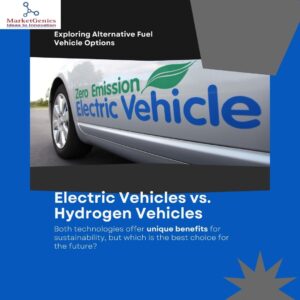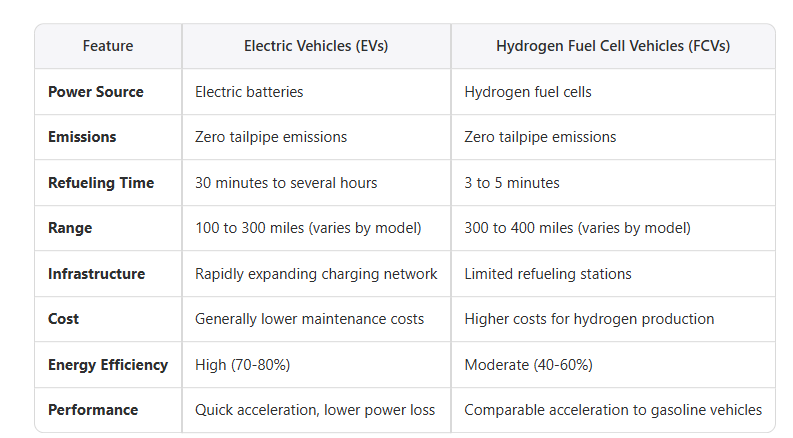In the 21st century, the automobile industry has undergone a significant change because of environmental concerns and the quest for sustainable transportation solutions. The leading technologies in the alternative fuel vehicle market are electric vehicles (EVs) and hydrogen fuel cell vehicles (FCVs), let’s examine them.
As various UN bodies have led to global awareness of climate change, the shift from traditional fossil fuels like coal, oil, and natural gas to sustainable alternatives has become essential. Traditional fossil fuels are non-renewable energy sources which poses a great threat to the environment. On the other hand, electric vehicles (EVs) and hydrogen fuel cell vehicles (FCVs) are two important technologies that aim to reduce reliance on non-renewable energy sources and greenhouse gas emissions.

Electric Vehicles (EVs):
Hydrogen Fuel Cell Vehicles (FCVs):

Electric Vehicles (EVs):
Hydrogen Fuel Cell Vehicles (FCVs):
Electric Vehicles (EVs):
Hydrogen Fuel Cell Vehicles (FCVs):
Conclusion
Both transportation technologies, whether it be Electric Vehicles or Hydrogen Vehicles, offer promising paths toward sustainable transportation. While electric vehicles lead over hydrogen vehicles in terms of market availability and infrastructure, hydrogen is still popular because of its unique advantages in refueling time and range. Many developed and developing countries have already adopted these two technologies and they are in the phase of evolving more. As technology advances and infrastructure develops, the automobile industry will continue to evolve, potentially leading to a hybrid approach where both technologies coexist in the transition to a cleaner future.


MarketGenics India is a MRSI certified company.
Send us your resume at
info@marketgenics.co
© 2025 MarketGenics India Pvt Ltd.; All rights reserved